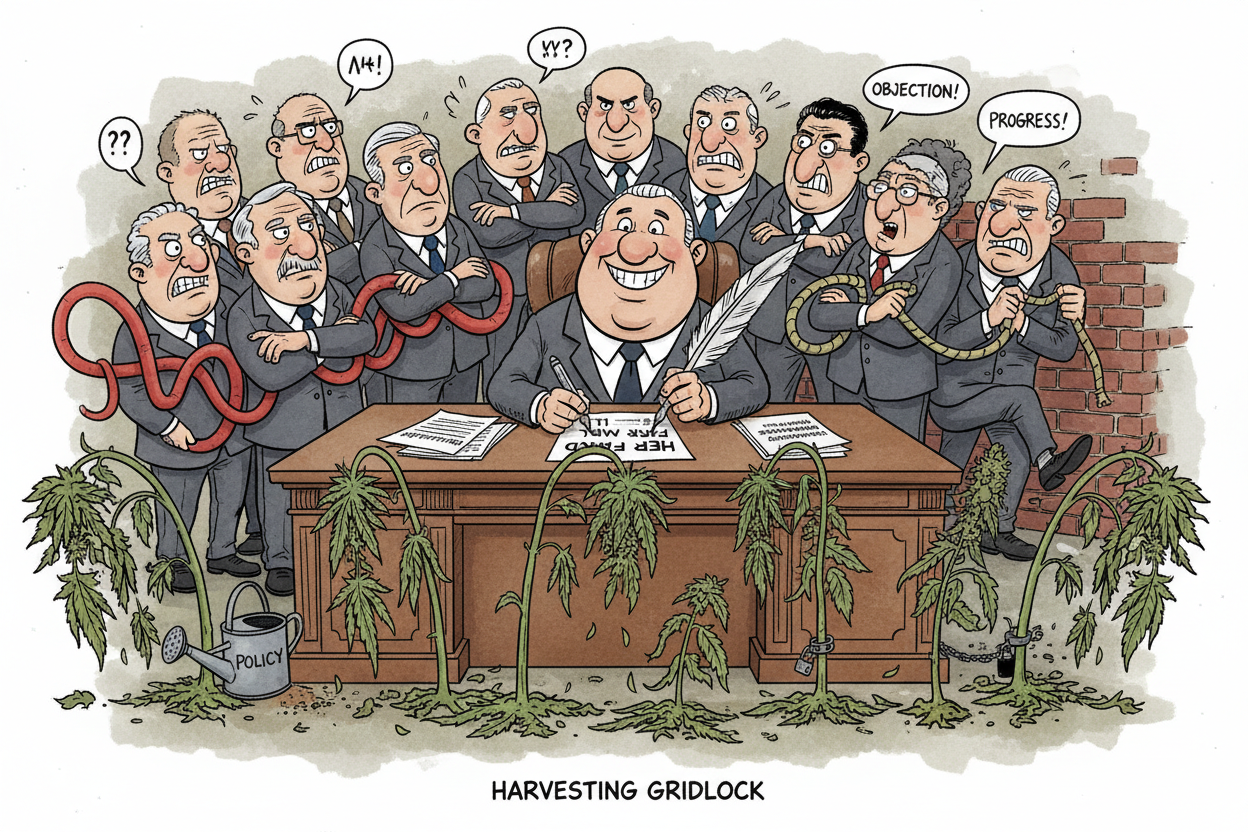Cannabis lovers and medical marijuana users, you’ve probably heard of THCa and THC. But do you really know the difference? More importantly, which one is stronger? In this post we’ll dive into the details of these two cannabinoids, breaking down their chemical makeup, psychoactive effects, and overall potency, and explaining the importance of understanding both THC and THCA levels in cannabis products. By the end you’ll know the difference between THCa and THC and which one is best for you.
What are Cannabinoids
Cannabinoids are the compounds in cannabis that interact with our body’s endocannabinoid system. These compounds are naturally produced by cannabis plants and exist in their raw forms within the plants. They are the key to the therapeutic and recreational effects of the plant. Among the most well known cannabinoids are THC (tetrahydrocannabinol) and its precursor THCa (tetrahydrocannabinolic acid).
What is THC?
THC is the psychoactive compound in cannabis, responsible for the “high” we get. The chemical structure of THC includes a carboxylic acid group that, when heated, undergoes decarboxylation to transform into its psychoactive form. It binds to CB1 receptors in the brain, mood, memory, pain and appetite.
What is THCa?
THCa is the acidic precursor to THC. Freshly harvested cannabis contains higher concentrations of THCa, which can convert to THC when exposed to heat or light. Found in raw and live cannabis, it doesn’t produce psychoactive effects. However when heated through smoking or vaping THCa converts to THC and becomes psychoactive.
Chemical Properties of THCa and THC
Understanding the chemical difference between THCa and THC is key to understanding their effects and potency. Decarboxylation is a chemical reaction that converts THCA into THC, influenced by heat, light, and time, and is crucial for creating the psychoactive effects associated with THC.
Molecular Structure
Both THCa and THC have the same molecular structure but with a key difference. THCa has an extra carboxyl group (COOH) making it an acid, which alters its chemical structure. This extra group affects how the molecule interacts with our bodies.
Decarboxylation Process
The conversion of THCa to THC is through decarboxylation, a process that is triggered by heat. This process involves THCa converted into THC by removing a carboxyl group, releasing carbon dioxide (CO2) in the process. Without decarboxylation, THCa is non-psychoactive.
Stability and Storage
THCa is less stable than THC. Raw cannabis plants contain THCa in its natural form, which is non-psychoactive. Over time and when exposed to light and air THCa can slowly convert into THC and other cannabinoids. Proper storage such as keeping cannabis in a cool dark place can help preserve its THCa content.
Psychoactive Effects of THCa and THC
When it comes to psychoactive effects THC is the main event but THCa isn’t entirely absent. Unlike THC, THCa does not produce intoxicating effects due to its inability to bind to cannabinoid receptors.
THC’s Psychoactive Properties
THC is famous for getting us high. THCA turns into THC through processes like smoking or decarboxylation, which is crucial for understanding its psychoactive effects. Its psychoactive effects are euphoria, relaxation, altered perception of time and increased sensory awareness. These effects make THC popular for both recreational and medical use such as pain relief and appetite stimulation.
THCa’s Impact on the Body
Although THCa isn’t psychoactive it still has benefits. The potential benefits of THCa as an emerging research area include its possible therapeutic effects and advantages over THC. Research suggests THCa has anti-inflammatory, neuroprotective and anti-emetic properties. Medical marijuana users often seek THCa for these therapeutic effects without the high.
Psychoactive Strength
When it comes to psychoactive strength THC wins hands down. THC is the active version of the same cannabinoid found in fresh cannabis. THCa only becomes psychoactive when it converts to THC and then has the same psychoactive properties. So in its raw form THCa is not stronger than THC.
Potency of THCa and THC
Potency refers to the strength and effectiveness of a substance. To calculate the total THC content, consider both THC and THCa percentages by converting THCa to THC and combining these values. For cannabis users understanding the potency of THCa and THC is key.
Measuring Potency in Cannabis Products
Cannabis products often list their THCa and THC content as a percentage of the total cannabinoid profile. The THCa percentage on product labels is crucial for understanding the potential potency when the product is heated. Higher percentages mean more potency.
Potency Factors
Several factors can affect the potency of THCa and THC:
- Strain Genetics: Different strains produce different levels of cannabinoids. The cannabis industry is continually evolving with diverse product offerings and consumer education, highlighting the significance of compounds like THCV.
- Growing Methods: Growing conditions such as soil, light and water can affect cannabinoid levels.
- Extraction Methods: The method of extraction from the plant can also impact overall potency.
THCa vs THC in Different Consumption Methods
The method of consumption plays a big role in the potency experienced by the user. When smoking or vaping, it is important to understand the THC content at combustion, which involves calculating the final THC percentage by considering both THC and THCa percentages and applying a decarboxylation conversion factor. Smoking or vaping cannabis converts THCa into THC and delivers immediate and strong effects. Eating raw cannabis such as in smoothies or salads gives you THCa without the high.
Health Benefits of THCa and THC
Both THCa and THC have many health benefits which is why they are so popular in the medical marijuana community. THCa is converted into THC through a process called decarboxylation, which occurs when heat is applied, removing a carboxyl group from the cannabinoid structure.
Pain Relief
THC is famous for its analgesic properties so it’s great for chronic pain. Calculating the final THC content is crucial for understanding the potency of cannabis products, which directly impacts their effectiveness in pain relief. THCa also shows potential in reducing inflammation which can help with pain.
Anti-Inflammatory Effects
THCa’s anti-inflammatory effects are good for arthritis and autoimmune diseases. Understanding the final THC content is crucial for determining the potency of cannabis products and their anti-inflammatory effects. THC also has anti-inflammatory properties but its psychoactive effects may not be desirable for some patients.
Neuroprotective Effects
Early research suggests both THCa and THC may have neuroprotective properties and could be used to treat neurodegenerative diseases like Alzheimer’s and Parkinson’s. THC and THCa are also being studied for their potential neuroprotective properties.
Side Effects and Risks
Like any substance THCa and THC have side effects and risks. Unlike THC, THCa does not produce intoxicating effects due to its inability to bind to cannabinoid receptors.
Side Effects of THC
THC’s psychoactive effects can cause side effects such as dry mouth, red eyes, increased heart rate and anxiety. THCA turns into THC through processes like smoking or decarboxylation, leading to these psychoactive effects. High doses can cause paranoia or hallucinations.
Side Effects of THCa
THCa is considered safe with few reported side effects. The potential benefits of THCa, including its possible therapeutic effects and advantages over THC, are being explored in emerging research. More research is needed to fully understand the long term effects.
Long Term Risks
Long term use of THC can cause tolerance, dependence and cognitive impairment. THC is the active version of the same cannabinoid found in fresh cannabis. THCa is less likely to cause these but its conversion to THC during use should be considered.
Legal Status of THCa and THC
The legal status of THCa and THC varies by location and affects their availability and use. The cannabis industry is constantly evolving, with regulations and product offerings adapting to new research and consumer demands. THCa is Federally Comliant and legal in all 50 states according to the farm bill of 2018.
THC Regulations
THC is a controlled substance in many countries with strict regulations. Understanding the THC content at combustion is crucial for legal product labeling, as it helps consumers determine the potency of cannabis products. But some places have legalized medical and recreational cannabis so more access is available.
THCa Legality
THCa is legal in areas where THC is not as it’s non-psychoactive. However, when THCa is converted into THC through decarboxylation, which occurs when heat is applied, it can complicate its legality.
Navigating Legal Issues
Consumers should know the local laws on THCa and THC to be compliant and avoid legal trouble. Understanding the total THC content is crucial for legal compliance, as it involves calculating both THC and THCa percentages to determine the final potency of cannabis products.
Choosing between THCa and THC
Choosing between THCa and THC depends on individual needs and preferences.
Understanding both THC and THCA levels in cannabis products is beneficial as it helps consumers make informed decisions based on the different effects and regulations surrounding these compounds.
Medical Uses
Medical marijuana users may prefer THCa for its therapeutic benefits without the high. Understanding the THCa percentage on product labels is crucial for medical use, as it helps in determining the potency and appropriate dosage. THC is better for those who want medicinal and recreational effects.
Recreational
Recreational users choose THC for the high. Consuming freshly harvested cannabis, which is rich in THCa, can provide additional health benefits. But consuming THCa rich raw cannabis can give you extra health benefits.
Personal Preference
In the end it’s all about personal preference and desired outcome. Trying different cannabis plants strains and methods can help you discover what works best for you. Try different strains and methods to see what works for you.
THCa and THC in Your Daily Life
THCa and THC in your daily routine will make you feel better. Consuming raw cannabis involves a chemical reaction known as decarboxylation, which converts THCA into THC under the influence of heat, light, and time, creating the psychoactive effects associated with THC.
Raw Cannabis
Consuming raw cannabis through smoothies, salads or juices gives you THCa without the high. Raw cannabis plants contain THCa, a non-psychoactive compound that offers therapeutic benefits. This is great for those who want the benefits of cannabis without the high.
Traditional Methods
Smoking or vaping cannabis converts THCa into THC and gives you instant effects. When smoking or vaping, the heat causes decarboxylation, a chemical process that removes a carboxyl group from THCa, converting it into THC. Edibles and tinctures are also ways to consume THC.
Finding the Balance
Balancing THCa and THC consumption will give you the best of both worlds. It's important to understand that THC is the active version of the same cannabinoid found in fresh cannabis, while THCa does not produce intoxicating effects. Consult a cannabis expert or healthcare professional to customize your approach.
Summary
In the end it’s THCa vs THC, winner is you. Both have their benefits and are part of the cannabis experience. THC is known for its intoxicating effects, while THCA does not produce a high but offers potential therapeutic advantages. Now you know the difference and can decide how to use them. For high quality THCa and THC products check out NOVA Hemp. Get cannabis and feel better today.






Share:
Does THCA Get You High? Discover the Truth
Battle of Cannabinoids: THCa vs Delta 8 – Which is Stronger?